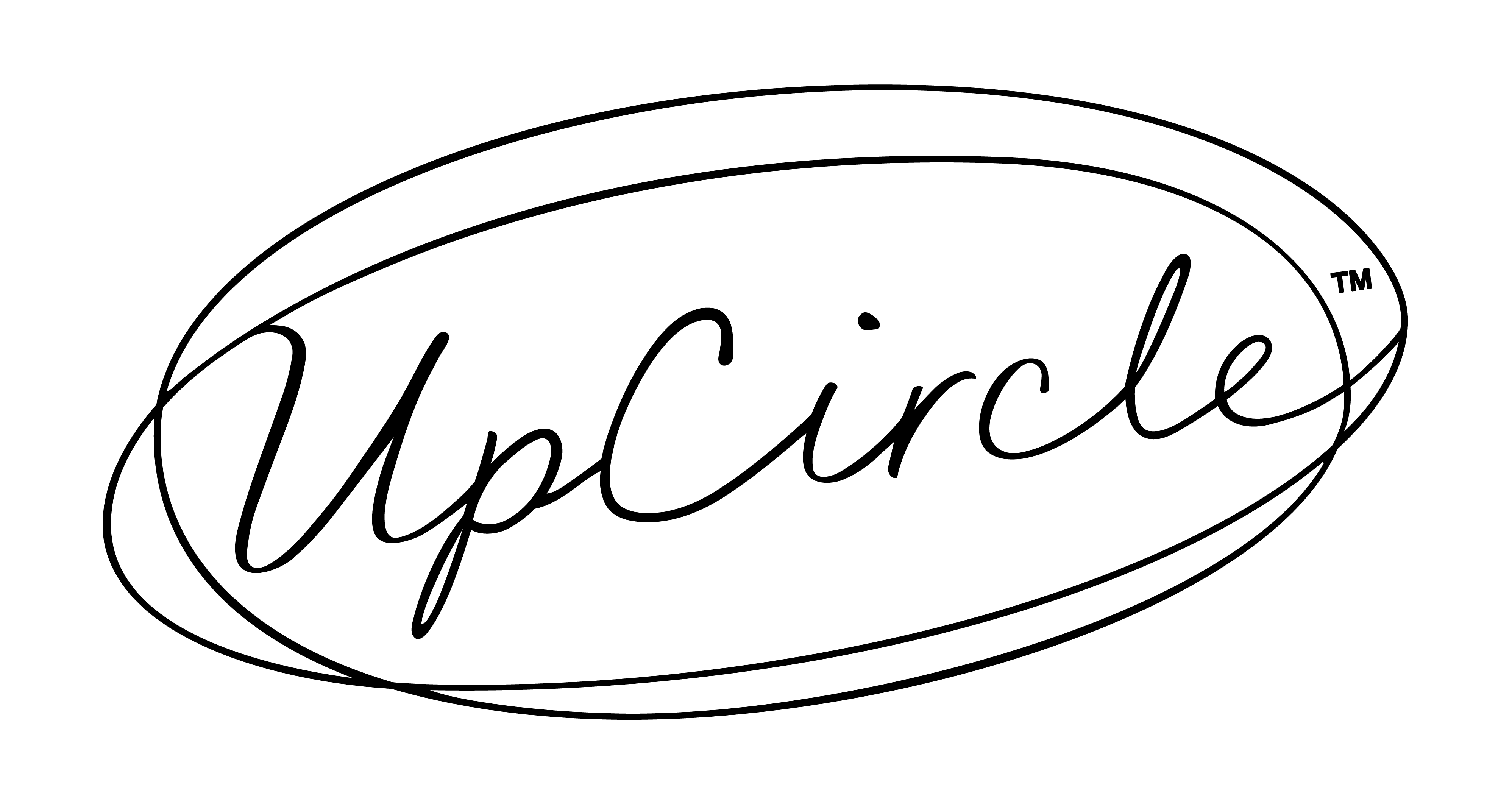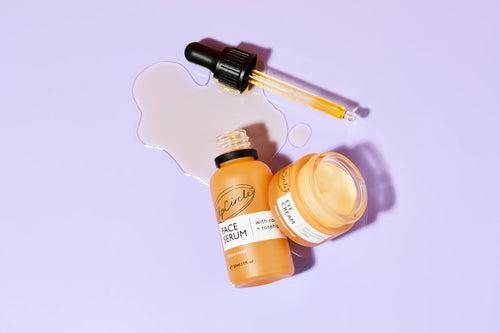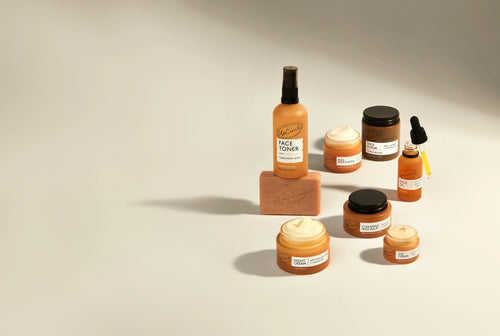Retinol is one of the most effective anti-ageing ingredients you can find in skincare products. You’ll hear it advertised in mainstream skincare and you’ll see it peppered across ingredient lists, whatever your chosen skincare products. But as there are various forms of retinol it can be confusing to know which one is best for your skin.
The beauty gurus at UpCircle are here to cut through the confusion and share their knowledge of one of the most popular and skin-friendly retinoids used in beauty products – pro-retinol.
Pro-retinol vs retinol
While both pro-retinol and retinol offer a boost of nutritional vitamin A that reduces the appearance of fine lines and wrinkles, there are some differences between retinol and pro-retinol.
Pro-retinol is milder than retinol and doesn’t degrade when exposed to the sun’s rays. The gentler formula of pro-retinol means it is less likely to irritate your skin and cause redness than other retinoids, making it the better choice for anyone with sensitive skin, acne or rosacea. It means that those with more sensitive skin can benefit from a retinoid, without the risk of aggravating existing skin problems. Being more stable in natural sunlight is, of course, important for when it is on your skin – you’ll know that it’s still working even when going about your daily life.
Does pro-retinol work?
Pro-retinol is a form of vitamin A that is suitable for topical application to the skin. Products containing pro-retinol are designed to help address age-related skin issues, and with regular application will work to improve your skin in the following ways:
Reduce the appearance of wrinkles
Pro-retinol can increase the turnover of skin cells to smooth the look of laughter lines and wrinkles – what we most commonly associate as the biggest tell-tale sign of ageing. As pro-retinol is a gentle ingredient, you’re less likely to experience any side effects, such as peeling or redness, whilst getting the benefits.
Increases the natural production of collagen
Pro-retinol is intensely hydrating, which helps to increase the production of collagen. Collagen helps to plump up your skin with moisture for a smoother complexion. Plumper skin looks more youthful and vibrant.
Sun-protective properties
If you’d like to increase your skin’s resistance against photo-ageing (ageing caused by sun exposure), choose beauty products that contain pro-retinol. While it’s not effective enough to replace sunscreen, the sun-protective properties of pro-retinol offer some defence against harmful UV rays. As explained above, pro-retinol retains stability in sunlight, so you continue to benefit from it.
However, don’t confuse pro-retinol with retinol – as retinol can actually make your skin more sensitive to the sun.
If you’d like more information on sun-protection for your skin, read our guide to choosing an SPF . Protecting your skin from the sun is a really important way to reduce ageing over the years.
Gentle enough for the eye area
The area surrounding your eyes is often the first place where fine lines develop. The skin here is naturally thinner and it’s challenged by frequent movement. Finding a suitable skincare product that is kind to the fragile skin around your eyes can be a challenge. Pro-retinol helps to gently care for the eye area by smoothing lines and reducing signs of tiredness.
Improves skin tone
Pro-retinol can help to improve your skin’s texture and even out your skin tone, minimizing the appearance of blemishes, dark spots and pigmentation marks. Using products with pro-retinol can induce a healthy and vibrant glow.

Can I use pro-retinol for acne?
Pro-retinol can be used on mild to moderate acne-prone skin. When used consistently, it will help to reduce the appearance of acne scars, open pores and pitting.
As pro-retinols are rich in vitamin A , they can also help to decrease inflammation after a breakout and minimize the production of sebum.
If you have severe acne combined with sensitive skin, pro-retinol can help to ‘acclimatize’ your skin cells to retinoids before you use a stronger one. If in doubt, we advise discussing your acne treatment with a dermatologist, as there are some prescription retinoids (such as Isotretinoin and Tretinoin) that may offer faster results. However, it’s generally good practice to choose natural ingredients, wherever possible.
Fight the free radicals in your skin
Vitamin A-rich pro-retinols can help to fight the free radicals in your skin, which contribute to clogged pores and acne breakouts, and are often considered to be the nasties behind skin ageing.
Maintaining a healthy diet is the best way to increase your vitamin A intake, so try to consume green leafy vegetables, blueberries, apricots, carrots and sweet potatoes for a natural boost. Yes, your skincare relies on what goes on the inside too!
Topical pro-retinol creams and serums should be used in conjunction with a healthy diet to help your skin feel as good on the outside as a healthy diet does on the inside.
How to use pro-retinol in your beauty regime
Pro-retinol is a gentle way to deliver antioxidant-rich vitamin A to your skin – and because it’s so mild it is easier to incorporate into your skincare routine than harsher retinols.
We suggest investing in a moisturizing Night Cream , such as our new UpCircle Beauty Night Cream, that contains pro-retinol. Simply smooth over your face and neck before bedtime and wake in the morning to rejuvenated skin.
Our Night Cream contains repurposed blueberry extracts, which is a natural source of pro-retinol designed to lock in moisture overnight. The blueberry extracts are also high in oleic acid, which helps the cream to soak deeper into the skin overnight and promote cell regeneration.
It’s our ethos to create amazing beauty products from food ingredients that are being discarded – yet still have much to offer our skin. We love the fact that our pro-retinol rich Night Cream is made from blueberries that would otherwise go to waste – and we know that you will too. Discover more about the ingredients we upcycle.







